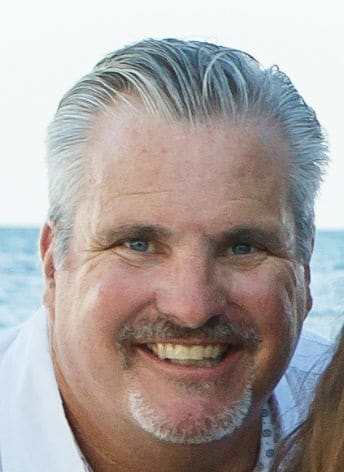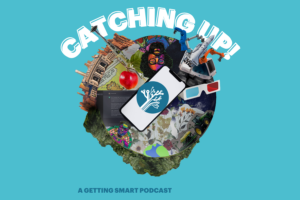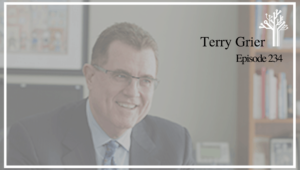10 Inevitable Education Evolutions Educators Can Lead

Change in education is something that is being discussed, written about, researched and even making the news at unprecedented levels. Like our climate crisis, it’s not a matter of whether it’s happening, but who will actually take action. If educators allow others to take the lead—politicians, researchers, pundits, business leaders, and consultants to name just a few—then the changes will be delayed and ultimately implemented with less fidelity. It’s time for educators to own the changes, thus owning their profession. We need to truly flip the whole concept of what it means to teach and be a true teacher.
Here are the 10 things that must change about education and why educators need to own them:
1. Professionals – Teachers need to claim and lead the professional standards of their profession. Just like in the profession of law enforcement, the system cannot tolerate or endure bad professionals. Cops need to police their own and so do teachers. For too long, we have collectively accepted that there are going to be a certain percentage of just plain ‘bad’ teachers. The fact is that they not only harm the profession, they ultimately cheat students. And we should not tolerate that—unions, tenure, contracts or whatever be damned. And with the teacher shortage at crisis levels, we cannot afford to continue this trend. The younger generations will not flock to a profession that tolerates such an ethical divide—where some teachers are there with a moral purpose to help students and treat them well and others are not.
2. Community Members – Globalism has affected education in many ways. But to be honest, teaching has always been a community-oriented profession. The only way to have an impact on students and learning is to be integrated into the community. This is why many teachers choose to coach teams, advise clubs, and lead extracurricular and co-curricular activities. As teachers, we often complain about not having enough respect professionally from our society. And sadly, that is true. But the only way to combat that is to be leaders in our communities. This does not mean we cannot have private lives or that we have to live our profession 24/7. But it does mean that we cannot hide. We cannot have teachers that show up before school starts and leave when school is out and never engage with their communities. There are dozens of ways to do this and we all need to discover our own way of belonging to the community.
3. Creatives – Author, speaker and publisher Dave Burgess, of “Teach Like A Pirate” fame, states it best. He says teachers will say it’s easy for him because he’s creative. According to Burgess, the truth is that one has to work at being creative. It’s like everything else—it has to be a focus and an ongoing effort. We all have different innate talents and abilities, but we can apply them creatively to our profession. This does not mean we all have to be artists, but it does mean we have to continually reimagine our instruction, curriculum and profession.
4. Relationship Ringleaders – Edu Disruptor Jon Corippo, author of the two EduProtocols books, said that he always viewed his role as a teacher as a “Maker of Kings.” It was his duty to treat every student with personal attention and then optimize their learning. This is only possible if we view ourselves as focused on relationships. Too many teachers either see this as an annoying leadership request or sadly, even irrelevant. Teaching is not primarily about curriculum. It’s about connections. Students want to work for people, not systems. We should know this because as educators we operate the same way.
5. Advocates – We can’t leave this to others. We all have to be advocates for all things education—funding, technology, autonomy, professional development, policy and more. But perhaps most importantly, we all need to be the ultimate advocates for young people. Too many adults, including many educators, spend way too much time unnecessarily criticizing and belittling young people. More than anything, students need someone who is consistently going to bat for them. Who better than teachers to serve in that role?
6. Professional Development Patrons, Promoters and Purveyors – As part of our role as consummate professionals, we need to embrace professional development (PD) as a universal foundation of education. We cannot preach lifelong learning to students and not live it ourselves. It cannot be viewed as something that administrators make us attend. We have to take ownership of our learning by leading it, presenting at conferences, reading professional literature, selecting options, partnering with colleagues, and requesting more time for PD. Too many educators view PD in the same way that too many of our students view school—as something that happens to us, not with us.
7. Curriculum Curators – Like so many things, curriculum is moving to a more open-source environment. The digital world is our new textbook and it’s unlimited. With the world becoming more project-based, there is really no excuse not to design curriculum for one’s current students based on their needs, interests and input. In a deeper learning culture, our curriculum is all things the universe has to offer (websites, blogs, books, higher education sites, local experts, business partners and more). Teachers will no longer be using a packaged, uniform curriculum that is being led or facilitated by others. We all need to become ‘the curriculum folks.’
8. Consistent Collaborators – This is not an isolated thing. Indeed, it’s the top skill that employers are looking for in our current students. We have become a truly collaborative universe and we have to work this way—especially in education. The work is too demanding, specialized, customized, and dynamic to work as solo artists. To be brilliant, we need one another. Collaboration can be with colleagues at our sites and all over the world thanks to social media. But we also need to take a larger view of collaboration. We need to collaborate with students, parents, community members, business leaders, politicians, volunteers, experts, professionals, and others.
9. Change Agents – All educators need to begin to view themselves as masters rather than captives of change. Change is inherent in learning and we need to model it. We should continually push for experimentation, risk-taking, and new approaches, ideas, skills, levels of mastery, models, and designs. If we cannot embrace change, we need to get out. If we can, then we need to lead it. With the number of problems, issues and challenges that our students and the world face, we have to know that change is the only constant.
10. Futurists – Teachers have traditionally had many responsibilities including lesson design, classroom management, assessment, and parent communication. However, most teachers have not seen themselves as students of the future. We cannot afford to leave this to the academics and business leaders. Educators need to understand the quickly changing dynamics of our new globalized economy and digital planet. It’s not enough to know that things are changing, we need to understand why. We need to regularly study the trends, the data and the innovators. Much of the resistance in the teaching ranks toward technology, new standards, project-based learning and more is directly connected to a disconnect to what is really transpiring in this new age.
The hope is that this list is the beginning of the conversation versus the end. As usual, I’m confident the list is not comprehensive or complete. Like everything else, it will have to evolve and change.
For more, see:
- The Road to Solutions
- Teachers Taking Leadership to Drive Positive Change
- Change is Difficult, But It Is Possible
Stay in-the-know with innovations in learning by signing up for the weekly Smart Update.







0 Comments
Leave a Comment
Your email address will not be published. All fields are required.